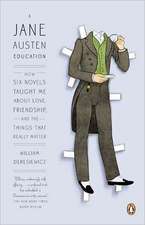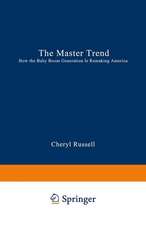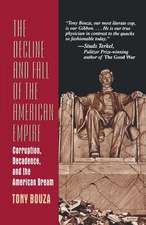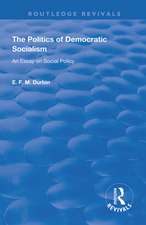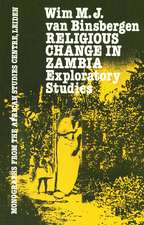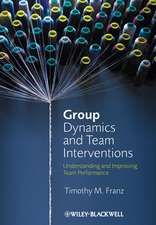Excellent Sheep: The Miseducation of the American Elite and the Way to a Meaningful Life
Autor William Deresiewiczen Limba Engleză Paperback – 4 iun 2015
Excellent Sheep takes a sharp look at the high-pressure conveyor belt that begins with parents and counsellors who demand perfect grades and culminates in the skewed applications Deresiewicz saw first-hand as a member of Yale's admissions committee. As schools shift focus from the humanities to "practical" subjects like economics, students are losing the ability to think independently. It is essential, says Deresiewicz, that college be a time for self-discovery, when students can establish their own values and measures of success in order to forge their own paths. He features quotes from real students and graduates he has corresponded with over the years, candidly exposing where the system is broken and offering clear solutions on how to fix it.
"Excellent Sheep is likely to make…a lasting mark….He takes aim at just about the entirety of upper-middle-class life in America….Mr. Deresiewicz's book is packed full of what he wants more of in American life: passionate weirdness" (The New York Times).
Preț: 50.61 lei
Preț vechi: 63.32 lei
-20% Nou
Puncte Express: 76
Preț estimativ în valută:
9.68€ • 10.11$ • 8.01£
9.68€ • 10.11$ • 8.01£
Carte disponibilă
Livrare economică 14-26 martie
Preluare comenzi: 021 569.72.76
Specificații
ISBN-13: 9781476702728
ISBN-10: 1476702721
Pagini: 272
Ilustrații: tip-in (w stepback)
Dimensiuni: 140 x 213 x 23 mm
Greutate: 0.2 kg
Editura: Free Press
Colecția Free Press
ISBN-10: 1476702721
Pagini: 272
Ilustrații: tip-in (w stepback)
Dimensiuni: 140 x 213 x 23 mm
Greutate: 0.2 kg
Editura: Free Press
Colecția Free Press
Notă biografică
William Deresiewicz was a professor at Yale until 2008. He is the author of the landmark essays “The Disadvantages of an Elite Education” and “Solitude and Leadership” and is a frequent speaker on campuses around the country. A contributing writer for The Nation and a contributing editor for The New Republic and The American Scholar, he is the author of A Jane Austen Education: How Six Novels Taught Me About Love, Friendship, and the Things That Really Matter. Visit BillDeresiewicz.com.
Extras
Excellent Sheep
This book, in many ways, is a letter to my twenty-year-old self. It talks about the kinds of things I wish that someone had encouraged me to think about when I was going to college—such as what the point of college might be in the first place.
I was like so many kids today (and so many kids back then). I went off to college like a sleepwalker, like a zombie. College was a blank. College was the “next thing.” You went to college, you studied something, and afterward you went on to the next next thing, most probably some kind of graduate school. Up ahead were vaguely understood objectives: status, wealth, getting to the top—in a word, “success.” As for where you went to school, that was all about bragging rights, so of course you chose the most prestigious place that let you in. What it meant to actually get an education, and why you might want one—how it could help you acquire a self, or develop an independent mind, or find your way in the world—all this was off the table. Like kids today, I was processed through a system everyone around me simply took for granted.
I started college in 1981. The system, then, was in its early days, but it was already, unmistakably, a system, a set of tightly interlocking parts. When I speak in this book of elite education, I mean prestigious institutions like Harvard or Stanford or Williams as well as the larger universe of second-tier selective schools, but I also mean everything that leads up to and away from them: the private and affluent public high schools; the ever-growing industry of tutors and consultants, test-prep courses and enrichment programs; the admissions process itself, squatting like a dragon at the entrance to adulthood; the brand-name graduate schools and employment opportunities that come after the BA; and the parents and communities, largely upper middle class, who push their children into the maw of this machine. In short, our entire system of elite education.
What that system does to kids and how they can escape from it, what it does to our society and how we can dismantle it—those are the subjects of this book. I was teaching a class at Yale on the literature of friendship. One day we got around to talking about the importance of being alone. The ability to engage in introspection, I suggested, is the essential precondition for living the life of the mind, and the essential precondition for introspection is solitude. My students took this in for a second—introspection, solitude, the life of the mind, things they probably had not been asked to think about before—then one of them said, with a dawning sense of self-awareness, “So are you saying that we’re all just, like, really excellent sheep?”
All? Surely not. But after twenty-four years in the Ivy League—college at Columbia; a PhD at the same institution, including five years as a graduate instructor; and ten years, altogether, on the faculty at Yale—that was more or less how I had come to feel about it. The system manufactures students who are smart and talented and driven, yes, but also anxious, timid, and lost, with little intellectual curiosity and a stunted sense of purpose: trapped in a bubble of privilege, heading meekly in the same direction, great at what they’re doing but with no idea why they’re doing it. In 2008, on my way out the door, I published an essay that sketched out a few of these criticisms. Titled “The Disadvantages of an Elite Education,” the article appeared in the American Scholar, a small literary quarterly. At best, I thought, it might get a few thousand readers.
Instead, it started to go viral almost from the moment it came out. Within a few weeks, the piece had been viewed a hundred thousand times (with many times that number in the months and years to come). Apparently I’d touched a nerve. These were not just the grumblings of an ex-professor. As it turned out from the many emails I began to get, the vast majority from current students and recent graduates, I had evoked a widespread discontent among today’s young high achievers—a sense that the system was cheating them out of a meaningful education, instilling them with values they rejected but couldn’t somehow get beyond, and failing to equip them to construct their futures.
Since then I have spoken with students on campuses across the country, corresponded with many others, answered these young people’s questions and asked my own, and heard and read their stories. It has been an education in itself, and this book is a reflection of that ongoing dialogue. Where possible, I’ve used their words to help me talk about the issues we’ve discussed, but every page has been informed by my sense of what these kinds of students need and want to think about. A lot of books get published about higher education, but none, as far as I can tell, are speaking to students themselves—still less, listening to them.
I begin the book by discussing the system itself—one that, to put it in a nutshell, forces you to choose between learning and success. Education is the way that a society articulates its values: the way that it transmits its values. While I’m often critical of the sort of kids who populate selective schools, my real critique is aimed at the adults who’ve made them who they are—that is to say, at the rest of us. Part 2 begins to explain what students can do, as individuals, to rescue themselves from the system: what college should be for, how to find a different kind of path in life, what it means to be a genuine leader. Part 3 extends the argument, talking in detail about the purpose of a liberal arts education, the value of the humanities, and the need for dedicated teachers and small classrooms. My aim is not to tell young people where to go to school so much as why.
Part 4 returns to the larger social question. The system is charged with producing our leadership class, the so-called meritocracy—the people who run our institutions, governments, and corporations. So how has that been going? Not, it’s clear by now, too well. What we’re doing to our kids we’re ultimately doing to ourselves. The time has long since passed, I argue, to rethink, reform, and reverse the entire project of elite education.
A word on what I mean when I speak of the elite. I don’t intend the term as it is often now deployed, as a slur against liberals, intellectuals, or anyone who disagrees with Bill O’Reilly, but simply as a name for those who occupy the upper echelons of our society: conservatives as well as liberals, businesspeople as well as professionals, the upper and the upper middle classes both—the managers, the winners, the whole cohort of people who went to selective colleges and are running society for their own exclusive benefit. This book is also, implicitly, a portrait of that class, whose time to leave the stage of history has now so evidently come.
Introduction
This book, in many ways, is a letter to my twenty-year-old self. It talks about the kinds of things I wish that someone had encouraged me to think about when I was going to college—such as what the point of college might be in the first place.
I was like so many kids today (and so many kids back then). I went off to college like a sleepwalker, like a zombie. College was a blank. College was the “next thing.” You went to college, you studied something, and afterward you went on to the next next thing, most probably some kind of graduate school. Up ahead were vaguely understood objectives: status, wealth, getting to the top—in a word, “success.” As for where you went to school, that was all about bragging rights, so of course you chose the most prestigious place that let you in. What it meant to actually get an education, and why you might want one—how it could help you acquire a self, or develop an independent mind, or find your way in the world—all this was off the table. Like kids today, I was processed through a system everyone around me simply took for granted.
I started college in 1981. The system, then, was in its early days, but it was already, unmistakably, a system, a set of tightly interlocking parts. When I speak in this book of elite education, I mean prestigious institutions like Harvard or Stanford or Williams as well as the larger universe of second-tier selective schools, but I also mean everything that leads up to and away from them: the private and affluent public high schools; the ever-growing industry of tutors and consultants, test-prep courses and enrichment programs; the admissions process itself, squatting like a dragon at the entrance to adulthood; the brand-name graduate schools and employment opportunities that come after the BA; and the parents and communities, largely upper middle class, who push their children into the maw of this machine. In short, our entire system of elite education.
What that system does to kids and how they can escape from it, what it does to our society and how we can dismantle it—those are the subjects of this book. I was teaching a class at Yale on the literature of friendship. One day we got around to talking about the importance of being alone. The ability to engage in introspection, I suggested, is the essential precondition for living the life of the mind, and the essential precondition for introspection is solitude. My students took this in for a second—introspection, solitude, the life of the mind, things they probably had not been asked to think about before—then one of them said, with a dawning sense of self-awareness, “So are you saying that we’re all just, like, really excellent sheep?”
All? Surely not. But after twenty-four years in the Ivy League—college at Columbia; a PhD at the same institution, including five years as a graduate instructor; and ten years, altogether, on the faculty at Yale—that was more or less how I had come to feel about it. The system manufactures students who are smart and talented and driven, yes, but also anxious, timid, and lost, with little intellectual curiosity and a stunted sense of purpose: trapped in a bubble of privilege, heading meekly in the same direction, great at what they’re doing but with no idea why they’re doing it. In 2008, on my way out the door, I published an essay that sketched out a few of these criticisms. Titled “The Disadvantages of an Elite Education,” the article appeared in the American Scholar, a small literary quarterly. At best, I thought, it might get a few thousand readers.
Instead, it started to go viral almost from the moment it came out. Within a few weeks, the piece had been viewed a hundred thousand times (with many times that number in the months and years to come). Apparently I’d touched a nerve. These were not just the grumblings of an ex-professor. As it turned out from the many emails I began to get, the vast majority from current students and recent graduates, I had evoked a widespread discontent among today’s young high achievers—a sense that the system was cheating them out of a meaningful education, instilling them with values they rejected but couldn’t somehow get beyond, and failing to equip them to construct their futures.
Since then I have spoken with students on campuses across the country, corresponded with many others, answered these young people’s questions and asked my own, and heard and read their stories. It has been an education in itself, and this book is a reflection of that ongoing dialogue. Where possible, I’ve used their words to help me talk about the issues we’ve discussed, but every page has been informed by my sense of what these kinds of students need and want to think about. A lot of books get published about higher education, but none, as far as I can tell, are speaking to students themselves—still less, listening to them.
I begin the book by discussing the system itself—one that, to put it in a nutshell, forces you to choose between learning and success. Education is the way that a society articulates its values: the way that it transmits its values. While I’m often critical of the sort of kids who populate selective schools, my real critique is aimed at the adults who’ve made them who they are—that is to say, at the rest of us. Part 2 begins to explain what students can do, as individuals, to rescue themselves from the system: what college should be for, how to find a different kind of path in life, what it means to be a genuine leader. Part 3 extends the argument, talking in detail about the purpose of a liberal arts education, the value of the humanities, and the need for dedicated teachers and small classrooms. My aim is not to tell young people where to go to school so much as why.
Part 4 returns to the larger social question. The system is charged with producing our leadership class, the so-called meritocracy—the people who run our institutions, governments, and corporations. So how has that been going? Not, it’s clear by now, too well. What we’re doing to our kids we’re ultimately doing to ourselves. The time has long since passed, I argue, to rethink, reform, and reverse the entire project of elite education.
A word on what I mean when I speak of the elite. I don’t intend the term as it is often now deployed, as a slur against liberals, intellectuals, or anyone who disagrees with Bill O’Reilly, but simply as a name for those who occupy the upper echelons of our society: conservatives as well as liberals, businesspeople as well as professionals, the upper and the upper middle classes both—the managers, the winners, the whole cohort of people who went to selective colleges and are running society for their own exclusive benefit. This book is also, implicitly, a portrait of that class, whose time to leave the stage of history has now so evidently come.
Recenzii
“In Excellent Sheep, William Deresiewicz sets out to unnerve the current and future college students of America (and their parents). He succeeds brilliantly, with an indictment of elite education that should launch a thousand conversations. Read this book to remember what learning should be, and then pass it along to the next sheep who should leave the flock behind.”
“This is a book of great importance to our society. It deserves to transform our understanding of integrity and achievement and success. William Deresiewicz is a genuine humanist with a profound faith in the promise of democracy, and he has an uncommon gift for wisdom without platitudes. Excellent Sheep is a withering analysis of the transactional spirit that rules American education and American life, and an inspiring example of a better ideal. A true teacher speaks here. He has my admiration and my gratitude.”
“William Deresiewicz’s book is in and of itself a higher education, and to read it is to learn what’s a college for. The author is an inspired teacher, and his lesson is of a truth sorely needing to be told.”
“William Deresiewicz’s Excellent Sheep is a searing and important critique of our morally bankrupt educational system. He argues, correctly, that colleges and universities, awash in corporate money and intend on churning out corporate managers and conformists rather than scholars, have betrayed not only their mission, but the students they purport to teach and by extension the wider society. Independent thought is subversive, uncomfortable and lonely. It requires us, as Deresiewicz points out, to challenge and question reigning assumptions rather than kneel before them. Deresiewicz’s book is not so much a call for reform as for revolt.”
"William Deresiewicz is one of America's best young public intellectuals. He has written a passionate, deeply informed, and searing critique of the way we are educating our young. Whether you agree or disagree - and I found myself doing both - you must read this book. It should spark a great debate on America's campuses and beyond."
“Excellent Sheep is likely to make…a lasting mark…for three reasons. One, Mr. Deresiewicz spent 24 years in the Ivy League, graduating from Columbia and teaching for a decade at Yale….He brings the gory details. Two, the author is a striker, to put it in soccer terms. He’s a vivid writer, a literary critic whose headers tend to land in the back corner of the net. Three, his indictment arrives on wheels: He takes aim at just about the entirety of upper-middle-class life in America…. Mr. Deresiewicz’s book is packed full of what he wants more of in American life: passionate weirdness.”
"It might surprise the countless students competing for admission to Harvard, Yale, and Stanford that they could be fighting for a dubious prize. But in this probing indictment, a former Yale professor accuses America’s top universities of turning young people into tunnel-visioned careerists, adept at padding their résumés and filling their bank accounts but unprepared to confront life’s most important questions. . . . An urgent summons to a long-overdue debate over what universities do and how they do it."
“Welcome to what is sure to be the most polarizing education and parenting book since Amy Chua’s Battle Hymn of the Tiger Mom.”
“This refreshingly barbed indictment of America’s prestige-education addiction reveals what college students are really getting out of all that work, all that struggle, all that stress – and all those tuition loans.”
"Excellent Sheep challenges parents to break from the herd mentality, to question what we really want from our children, who we really want them to be. The book filled me with both hope that there could be a more authentic, creative way to raise a new generation of thinkers--and with the courage to try to find it."
“Deresiewicz’s critique of America’s most celebrated schools as temples of mercenary mediocrity is lucid, sharp-edged, and searching … he poses vital questions about what college teaches—and why.”
“An unquestionably provocative book that hopefully leads to productive debate.”
"Not only does Deresiewicz speak with candor about the ins and outs of the educational hierarchy from an insiders point of view, but he prompts some serious questions about the potential for reform and what we as parents can do to encourage our children from a young age to change the way that they’re learning, and as a result, what they take from the world in exchange. A much recommended read, especially for those currently with or planning to have children."
“[A] good case that these colleges are failing in their most essential mission: to help kids "build a self."
“Provocative.”
“Anyone who cares about American higher education should ponder this book.”
"Exceptionally enlightening."
“This is a book of great importance to our society. It deserves to transform our understanding of integrity and achievement and success. William Deresiewicz is a genuine humanist with a profound faith in the promise of democracy, and he has an uncommon gift for wisdom without platitudes. Excellent Sheep is a withering analysis of the transactional spirit that rules American education and American life, and an inspiring example of a better ideal. A true teacher speaks here. He has my admiration and my gratitude.”
“William Deresiewicz’s book is in and of itself a higher education, and to read it is to learn what’s a college for. The author is an inspired teacher, and his lesson is of a truth sorely needing to be told.”
“William Deresiewicz’s Excellent Sheep is a searing and important critique of our morally bankrupt educational system. He argues, correctly, that colleges and universities, awash in corporate money and intend on churning out corporate managers and conformists rather than scholars, have betrayed not only their mission, but the students they purport to teach and by extension the wider society. Independent thought is subversive, uncomfortable and lonely. It requires us, as Deresiewicz points out, to challenge and question reigning assumptions rather than kneel before them. Deresiewicz’s book is not so much a call for reform as for revolt.”
"William Deresiewicz is one of America's best young public intellectuals. He has written a passionate, deeply informed, and searing critique of the way we are educating our young. Whether you agree or disagree - and I found myself doing both - you must read this book. It should spark a great debate on America's campuses and beyond."
“Excellent Sheep is likely to make…a lasting mark…for three reasons. One, Mr. Deresiewicz spent 24 years in the Ivy League, graduating from Columbia and teaching for a decade at Yale….He brings the gory details. Two, the author is a striker, to put it in soccer terms. He’s a vivid writer, a literary critic whose headers tend to land in the back corner of the net. Three, his indictment arrives on wheels: He takes aim at just about the entirety of upper-middle-class life in America…. Mr. Deresiewicz’s book is packed full of what he wants more of in American life: passionate weirdness.”
"It might surprise the countless students competing for admission to Harvard, Yale, and Stanford that they could be fighting for a dubious prize. But in this probing indictment, a former Yale professor accuses America’s top universities of turning young people into tunnel-visioned careerists, adept at padding their résumés and filling their bank accounts but unprepared to confront life’s most important questions. . . . An urgent summons to a long-overdue debate over what universities do and how they do it."
“Welcome to what is sure to be the most polarizing education and parenting book since Amy Chua’s Battle Hymn of the Tiger Mom.”
“This refreshingly barbed indictment of America’s prestige-education addiction reveals what college students are really getting out of all that work, all that struggle, all that stress – and all those tuition loans.”
"Excellent Sheep challenges parents to break from the herd mentality, to question what we really want from our children, who we really want them to be. The book filled me with both hope that there could be a more authentic, creative way to raise a new generation of thinkers--and with the courage to try to find it."
“Deresiewicz’s critique of America’s most celebrated schools as temples of mercenary mediocrity is lucid, sharp-edged, and searching … he poses vital questions about what college teaches—and why.”
“An unquestionably provocative book that hopefully leads to productive debate.”
"Not only does Deresiewicz speak with candor about the ins and outs of the educational hierarchy from an insiders point of view, but he prompts some serious questions about the potential for reform and what we as parents can do to encourage our children from a young age to change the way that they’re learning, and as a result, what they take from the world in exchange. A much recommended read, especially for those currently with or planning to have children."
“[A] good case that these colleges are failing in their most essential mission: to help kids "build a self."
“Provocative.”
“Anyone who cares about American higher education should ponder this book.”
"Exceptionally enlightening."
Descriere
A ground-breaking manifesto about what Americas top schools should be-but aren't-providing.

